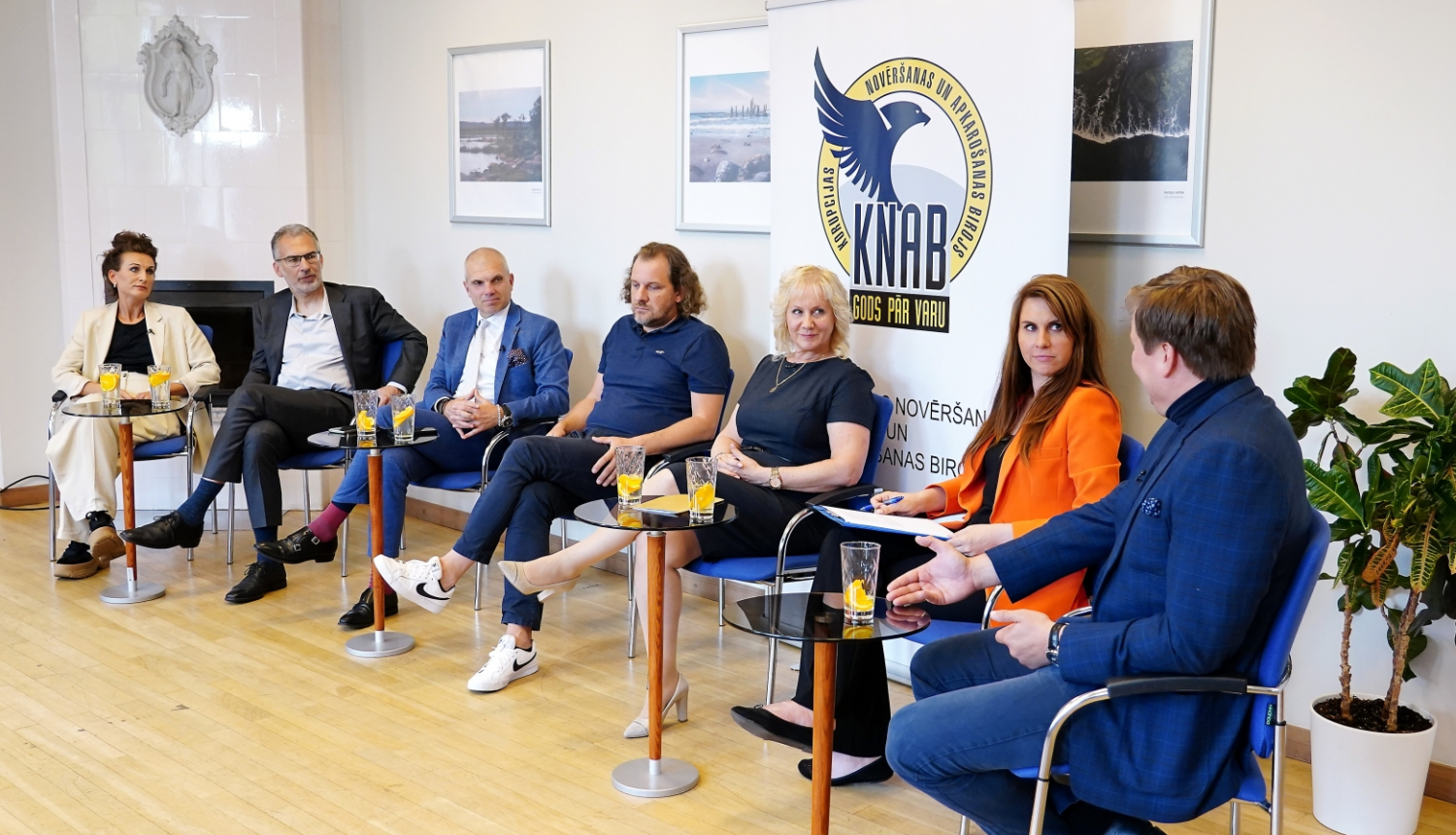On 30 August, the Corruption Prevention and Combating Bureau (KNAB) organised the think-tank “Cheating and Public Corruption – Coincidence or Logical Progression?” It brought together experts from anti-corruption and other fields to discuss the possibility of a correlation between a lack of integrity in private life and tolerance of corruption in the state. Despite a diversity of opinions, the experts a concluded that public engagement is vital in the fight against corruption and other crimes resulting therefrom, regardless of the pitfalls that may arise in our private lives.
Although social psychology research increasingly points to a link between corruption and ethical behaviour issues at an everyday level, there was no consensus among participants on whether corruption and dishonesty in everyday situations are interconnected. In general, the discussion did highlight corruption as a complex and multidimensional problem. At the same time, the participants agreed that fighting corruption requires a comprehensive and structural approach that is in the interest of society as a whole, and therefore everyone should be involved.
Clinical psychologist Ms. Kristīne Balode stressed that corruption and its roots can be linked to individual psychology and upbringing. Attitudes towards fellow people, the state and society are formed at an early age and can affect people's choices and actions towards corruption.
Mr. Valts Kalniņš of the Centre for Public Policy PROVIDUS pointed out that corruption also stems from a misunderstanding of empathy, for example, when making excuses for the corrupt. Our historical experience with the negative judgement of the authorities has created a distorted perception of whistleblowing as a form of betrayal.
On the other hand, Mr. Aigars Rostovskis, President of the Latvian Chamber of Commerce and Industry, said that corruption cannot be simplified as a tendency to dishonesty or as accepting and giving bribes. It is a broader problem that concerns the relationship between the individual and the state. Obstacles to business development can encourage corrupt practices, as people will look for ways to overcome them, often with the interests of their families in mind.
Mr. Andris Bite, President of the Employers' Confederation of Latvia, stressed the importance of long-term trends related to corruption, pointing out that although there may be a reduction in bribe-taking in business, there is certainly room for improvement when it comes to overall trust and the ability to overcome such practices, as trust in whistleblowing is still lacking.
At the end of the event, Ms. Inta Nolle, representative of KNAB, called for a change in how we think and drew attention to the fact that corruption affects every single member of society. I. Nolle also said that KNAB is launching a new reporting platform “Report to KNAB!” with anonymity and feedback functions this September, and a new social campaign. The campaign aims to raise awareness about the devastating impact of corruption and the importance of personal choice by encouraging people to report suspected cases of corruption.
The think-tank was organized in the scope of the “Support for the establishment of a whistle-blowing system in Latvia” project, where KNAB receives European Economic Area grants from Iceland, Lichtenstein and Norway. The goal of the project is to promote public engagement in reporting corruption and other latent crimes, while simultaneously providing the public with a safe and convenient reporting channel, as well as improve the competence of KNAB in detecting corruptive criminal offences.




